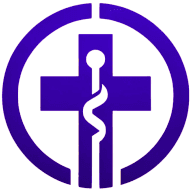The world of medical technology is constantly evolving, bringing forth innovations that are transforming healthcare as we know it. This blog post delves into these groundbreaking advancements, shedding light on how they are revolutionizing patient care, diagnostics, and treatment protocols.
The Rise of Telemedicine
Telemedicine is one of the most significant innovations in medical technology. It allows healthcare professionals to evaluate, diagnose, and treat patients remotely using telecommunications technology. This innovation has made healthcare more accessible, especially for patients living in remote areas or those who cannot physically visit a healthcare facility.
The COVID-19 pandemic has further accelerated the adoption of telemedicine. Healthcare providers have turned to this technology to continue providing care to their patients while minimizing the risk of spreading the virus. Telemedicine has also proven to be a cost-effective solution, reducing the need for hospital visits and admissions.
Moreover, telemedicine has opened up opportunities for remote patient monitoring. Healthcare providers can now track their patients' health in real-time, enabling them to intervene promptly when necessary. This proactive approach to patient care can lead to improved health outcomes and patient satisfaction.
Artificial Intelligence in Healthcare
Artificial intelligence (AI) is another innovation that is reshaping the medical field. AI algorithms can analyze vast amounts of data quickly and accurately, aiding in diagnostics and treatment planning.
AI has shown great promise in the field of radiology. It can analyze imaging data to detect abnormalities, such as tumors, with a high degree of accuracy. This can lead to earlier detection of diseases, increasing the chances of successful treatment.
Furthermore, AI is revolutionizing personalized medicine. It can analyze a patient's genetic data to predict their response to certain medications. This can help healthcare providers tailor treatment plans to each patient's unique genetic makeup, improving treatment efficacy and reducing side effects.
The Advent of Wearable Medical Devices
Wearable medical devices are another innovation that is transforming healthcare. These devices can monitor various health parameters, such as heart rate, blood pressure, and glucose levels, in real-time. This allows patients to take a more active role in managing their health.
Wearable devices can also alert users to potential health issues, prompting them to seek medical attention. This can lead to early detection and treatment of diseases, improving health outcomes.
Moreover, wearable devices can collect valuable health data over time. This data can provide insights into a patient's health trends, aiding healthcare providers in making informed treatment decisions.
The Impact of 3D Printing in Medicine
3D printing is another innovative technology that is making waves in the medical field. It allows for the creation of customized medical devices, such as prosthetics and implants, tailored to each patient's unique anatomy.
3D printing can also produce models of patients' organs, aiding surgeons in preoperative planning. This can lead to more precise surgeries, reducing complications and improving patient outcomes.
Furthermore, researchers are exploring the potential of 3D printing in tissue engineering. The goal is to create functional tissues and organs for transplantation, potentially addressing the shortage of organ donors.
The Role of Robotics in Surgery
Robotics is another area where medical technology is making significant strides. Robotic surgery systems, such as the da Vinci Surgical System, allow surgeons to perform complex procedures with greater precision and control.
Robotic surgery can lead to smaller incisions, reducing pain and recovery time for patients. It can also reduce the risk of complications, improving patient outcomes.
Moreover, robotics can extend the capabilities of surgeons, allowing them to perform procedures that were previously deemed too risky or impossible. This can expand treatment options for patients, improving their chances of recovery.
The Future of Medical Technology
The innovations in medical technology discussed above are just the tip of the iceberg. The field is evolving at a rapid pace, with new technologies and applications emerging regularly.
Looking ahead, technologies like nanomedicine, gene therapy, and virtual reality hold great promise. These innovations could further revolutionize healthcare, improving patient care and outcomes.
However, the adoption of these technologies also presents challenges, such as data security and ethical considerations. It is crucial for healthcare providers and policymakers to address these issues to ensure the safe and effective use of these technologies.
Wrapping Up the Journey Through Medical Technology Innovations
The innovations in medical technology are revolutionizing healthcare, improving patient care, and outcomes. As we continue to navigate this exciting landscape, it is crucial to embrace these advancements while addressing the challenges they present. The future of healthcare is here, and it is teeming with possibilities.

